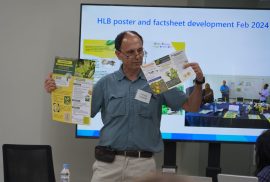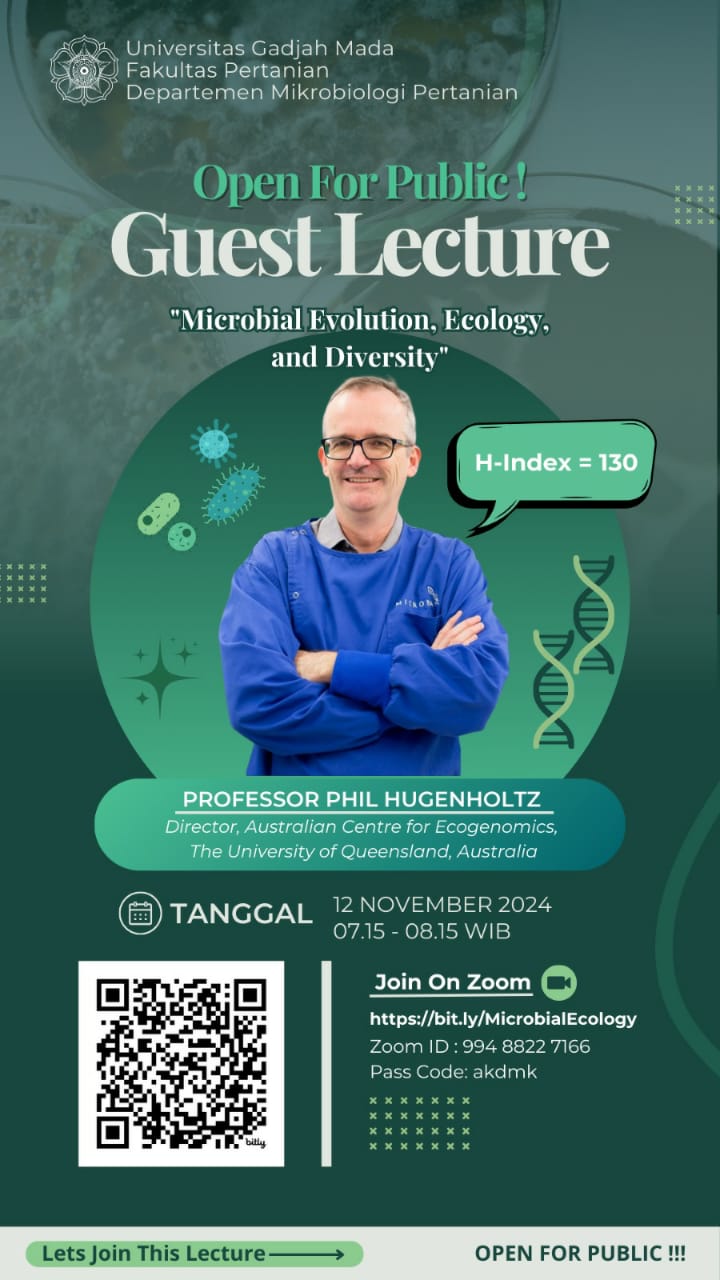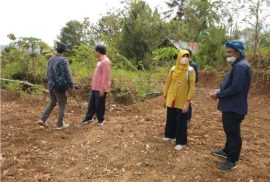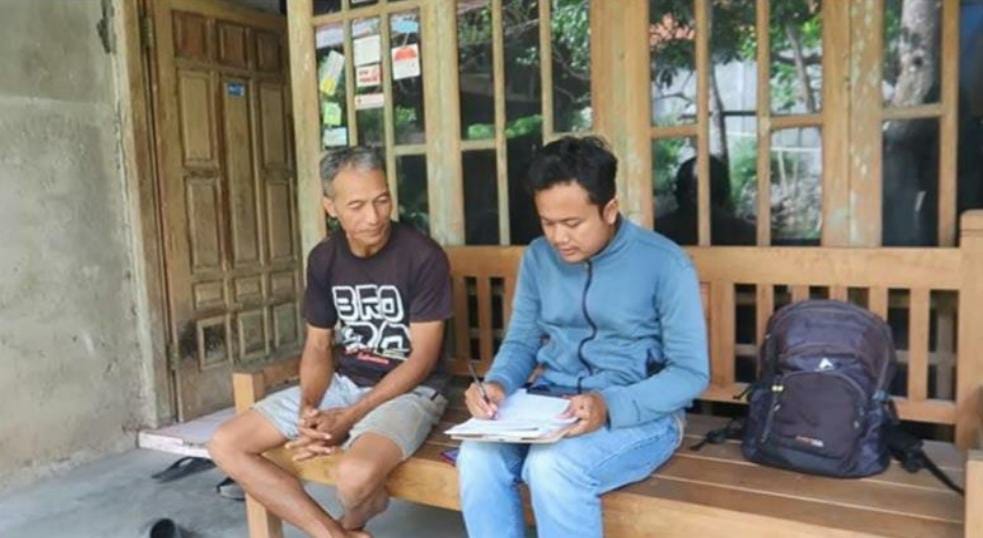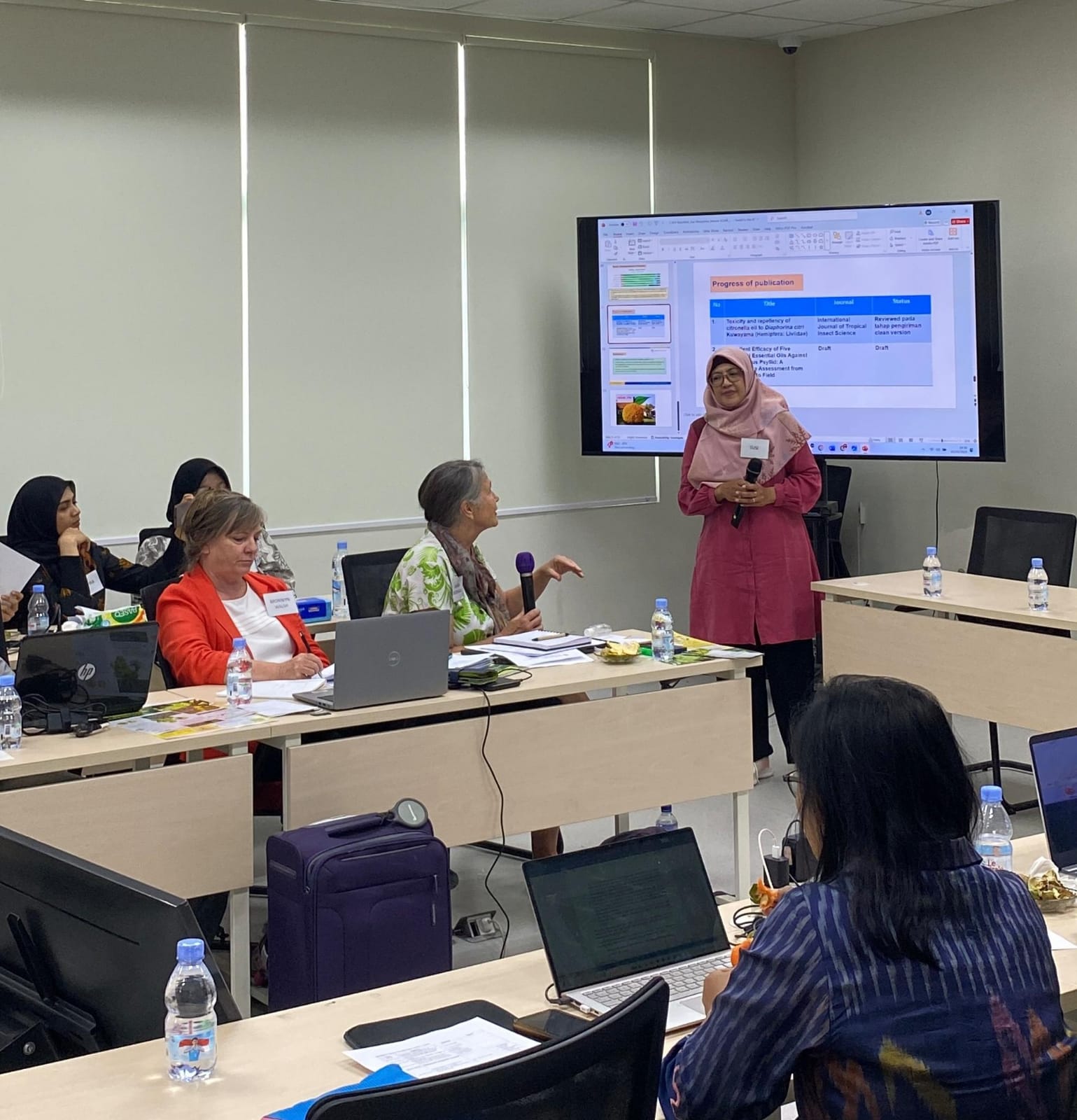
The Faculty of Agriculture, Universitas Gadjah Mada (Faperta UGM), served as one of the hosts for the ACIAR 2025 Annual Review, a part of the collaborative project HORT/2019/164: “Preparedness and Management of Huanglongbing (citrus greening disease) to safeguard the future of the citrus industry in Australia, China, and Indonesia.” The annual review was held on Monday, 5 May 2025, at the Venture Room, 6th Floor, AGLC Building, Faculty of Agriculture UGM.
The event gathered research teams from Faperta UGM, the National Research and Innovation Agency (BRIN), and the New South Wales Department of Primary Industries (NSW DPI, Australia) to present their research progress on preparation and management practices in the citrus industry. The presentations were attended by ACIAR Manager of Horticulture, Dr. Sandra McDougall, and project reviewers Dr. Bronwyn Walsh and Ir. Agus Muharam, M.S. Students involved in the project were also present as part of the audience.

